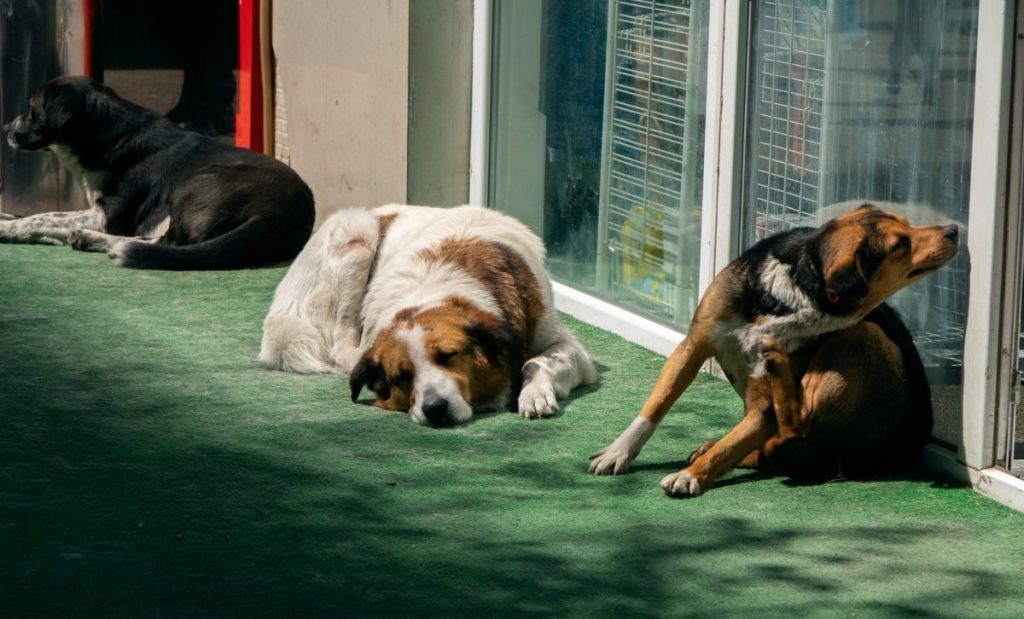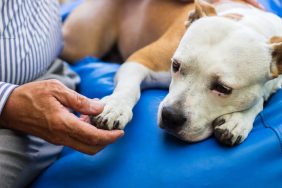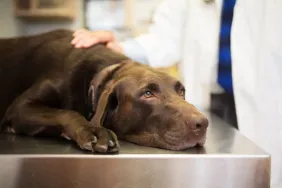After a severe respiratory illness killed three dogs at the San Diego Humane Society (SDHS), the shelter has stopped accepting owner-surrendered pets. Officials stated diseases have been more difficult to manage due to the shelter being far beyond capacity. The organization plans to exclusively limit intake to stray dogs until Dec. 1.
Three dogs die before outbreak detected
Due to the presence of two highly contagious diseases, the SDHS has temporarily suspended most intakes. The shelter is allowing exceptions only in emergency situations that pose a threat to the pet’s health, as per reporting by NBC-7.
The two pathogens that are attacking the dogs are Mycoplasma, a bacterial infection, and Streptococcus Equi subspecies zooepidemicus, also referred to as Strep zoo. According to SDHS, the two pathogens working together “have led to more severe disease than what the shelter might see with just one of these pathogens.”
In a statement issued on Nov. 13, the shelter shared that the illness that killed three dogs is mainly spread through direct contact. It can also spread through fomites, or inanimate objects capable of carrying the disease. In an attempt to prevent pathogens from spreading, “all 77 dogs who have tested positive or been exposed to Strep zoo are being treated.” Furthermore, “staff working with the dogs are required to wear personal protective equipment.”
Jonathan Chapman, Director of Veterinary Education at SDHS, informed the public that the illness is typically confined to animal shelters. As such, it presents minimal risk to the broader canine population.
Adding to the complexity of the situation, SDHS has long exceeded its full capacity. Resultantly, the current challenge of containing respiratory illness is exacerbated by SDHS operating at “178% capacity for dogs and 116% capacity for cats.”
Surrender restrictions and modifications at San Diego Humane Society
The president and CEO of the local humane organization, Gary Weitzman, stated, “Any shelter that cares for the large number of animals we care for is used to managing infectious disease, but this is the first time we have had this highly virulent pathogen.”
“We think that this is directly related to the fact that we have had to run above capacity the entire year,” Weitzman said. “To save lives here, the community’s assistance is truly needed.”
Officials at SDHS have implemented the following changes across all their locations in San Diego, El Cajon, Escondido, and Oceanside:
- Restricting dog intake exclusively to stray animals until Dec. 1.
- Surrender of any other animals should be by appointment.
- Waiving reclaiming fees for individuals retrieving lost dogs until Dec. 1.
- Waiving adoption fees for all puppies and dogs until Dec. 1.
- Encouraging individuals to consider temporary fostering of dogs.
The Humane Society has created a dedicated page for Strep zoo updates. Ongoing information about the situation will be provided through the site.
Nina Thompson, a spokesperson for the Humane Society, emphasized that residents of San Diego can actively contribute to the solution by adopting or fostering pets currently in overcrowded shelters. Thompson also offered support to individuals worried they might need to surrender their pets.
“Just call us and have that conversation,” Thompson said.
SDHS is urging individuals to consider temporarily fostering a dog. The shelter hopes to quickly rehome at least 100 dogs in an effort to combat the illness. Anyone interested in becoming a foster should contact the shelter by email at [email protected].









